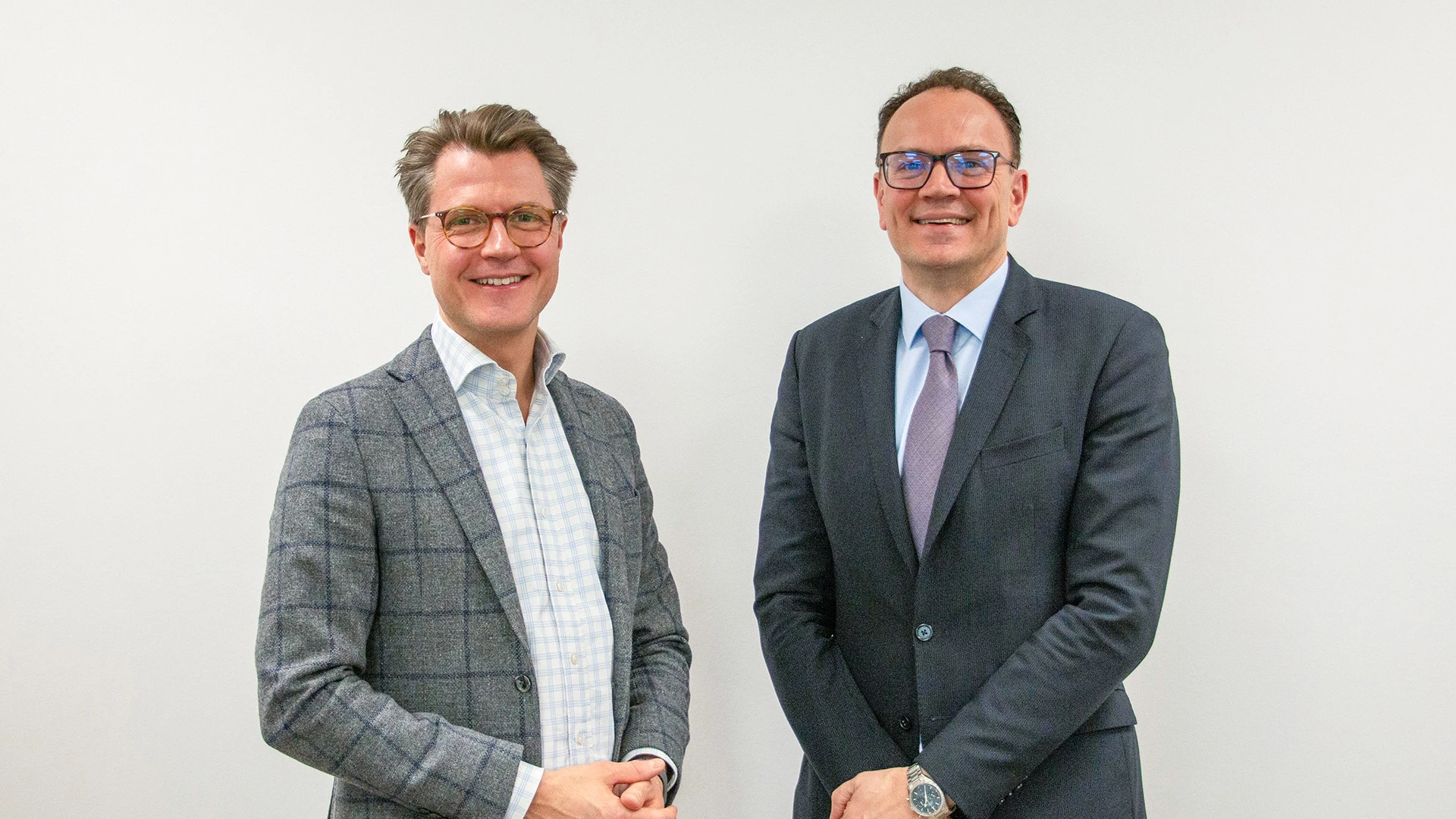Select your country
Websites worldwide
Select a country to go to the website of the respective STADA sales company.
Australia (1)
Austria (1)
Belarus (1)
Belgium (1)
Bosnia-Herzegovina (1)
Bulgaria (1)
China (1)
Croatia (1)
Czech Republic (2)
Denmark (1)
France (1)
Hungary (1)
Ireland (1)
Italy (1)
Montenegro (1)
Netherlands (2)
Poland (1)
Portugal (1)
Romania (1)
Saudi Arabia (1)
Serbia (1)
Slovakia (1)
Slovenia (1)
Spain (1)
Switzerland (1)
Thailand (1)
The Phillippines (1)
United Kingdom (3)
Vietnam (2)
News
- 13/01/2025
- Press Release
STADA’s Stephan Eder sets access, manufacturing and sustainability at the heart of Medicines for Europe Presidency
Brussels, Belgium/Bad Vilbel, Germany – 13 January 2025 – The Board of Medicines for Europe has elected Stephan Eder, Head of Western Europe & Germany at STADA as President for a two-year term running until 2027. Eder outlined the policy priorities which will shape his mandate.
- Facilitating sustainable market policies that recognise the full value of the off-patent medicines sector in delivering access.
- Supporting a vibrant off-patent medicines manufacturing sector in Europe.
- Building a strong environmental, social and governance agenda for medicines with patient access at its core.
Eder stated: “The off-patent medicines industry plays a critical role in public health and must be central when adopting industrial, economic and environmental policies. 7 out of every 10 medicines dispensed in Europe are generic medicines, including 9 out of 10 on the EU Critical Medicines List, while the industry directly employs almost 200,000 highly qualified people. Ensuring the sustainability of this essential sector will be vital for healthcare systems throughout Europe.”
Eder thanked the outgoing President, Elisabeth Stampa (Medichem), for the many achievements in striving for equitable access to medicines during her mandate, including: safeguarding medicines supplies through a period of high-cost inflation; supporting patients in Ukraine through coordinated donations; pushing for balanced intellectual-property provisions amid the ongoing EU pharmaceutical legislation review; and ensuring a Critical Medicines Act is high on the European Union’s political agenda. “I look forward to drawing on the experience and expertise of both Elisabeth and Polpharma’s Markus Sieger in their roles as Medicines for Europe vice-presidents,” Eder commented.
At the same time, Marc Crouton, President region Europe at Fresenius Kabi, and Sandoz’ President Europe Christophe Delenta were elected to Medicines for Europe’s Executive through to 2027.
Addressing his vision for sustainable markets, Eder insisted that the industry’s substantial contribution to sustaining health systems went well beyond price competition. He argued for the inclusion of Most Economically Advantageous Tender (MEAT) criteria in procurement procedures, along with national and local market reforms to ensure sustained medicines supplies. Competition immediately upon loss of exclusivity must be a priority in the ongoing review of EU pharma legislation, while the opportunity offered by the planned Critical Medicines Act should be grasped to improve security of supply while reducing bureaucracy.
With more than 400 manufacturing sites in Europe, the off-patent medicines sector is already a vibrant contributor to European industrial policy. Eder highlighted the importance of rewarding security and supply and greener manufacturing practices in procurement rounds. The Critical Medicines Act, he said, should include financial incentives for manufacturing investments, such as tax breaks and dedicated EU funding mechanisms. National stockpiling pressures were counterproductive to sustainable supply solidarity in Europe, he added.
Europe’s off-patent medicines sector was, Eder highlighted, ready to lead with a considered and coherent environmental, social and governance agenda. Industry leadership on issues such as climate change must, he stressed, be supported by greater regulatory flexibility and efficiency, such as a move to electronic patient information leaflets. Environmental regulations must take into account the specific value of older and inexpensive, yet vital, generic medicines and manufacturing capabilities so as not to endanger patient access.

President of Medicines for Europe Stephan Eder (left) with association Director General, Adrian van den Hoven (right)
About Stephan Eder, Head of Western Europe & Germany, STADA
Stephan Eder has more than 20 years of experience in the healthcare industry. He has been a member of STADA's global management team since 2020 and is responsible for Western European markets, including Germany. Before joining STADA, Stephan Eder held various international management positions at Novartis, Sandoz and Hexal.
About Medicines for Europe
Medicines for Europe represents the generic, biosimilar and value-added medicines industries across Europe. Its vision is to provide sustainable access to high quality medicines, based on 5 important pillars: patients, quality, value, sustainability and partnership. Its members directly employ 190,000 people at over 400 manufacturing and 126 R&D sites in Europe and invest up to 17% of their turnover in R&D investment. Medicines for Europe member companies across Europe are both increasing access to medicines and driving improved health outcomes. They play a key role in creating sustainable European healthcare systems by continuing to provide high quality, effective generic medicines, whilst also innovating to create new biosimilar medicines and bringing to market value added medicines, which deliver better health outcomes, greater efficiency and/or improved safety in the hospital setting for patients. For more information, please follow us at www.medicinesforeurope.com and on Twitter/X @medicinesforEU.
About STADA Arzneimittel AG
STADA Arzneimittel AG is headquartered in Bad Vilbel, Germany. The company focuses on a three-pillar strategy consisting of consumer healthcare products, generics and specialty pharma. Worldwide, STADA Arzneimittel AG sells its products in more than 100 countries. In financial year 2023, STADA achieved group revenues of EUR 3,734.8 million and reported earnings before interest, taxes, depreciation and amortization (EBITDA) of EUR 802.1 million. As of 31 December 2023, STADA employed 11,667 people worldwide.
Additional information for journalists:
STADA Arzneimittel AG - Media Relations
Stadastrasse 2-18
61118 Bad Vilbel - Germany
Phone: +49 (0) 6101 603-165
E-Mail: press@stada.de
-
Download in PDF format
- Share


